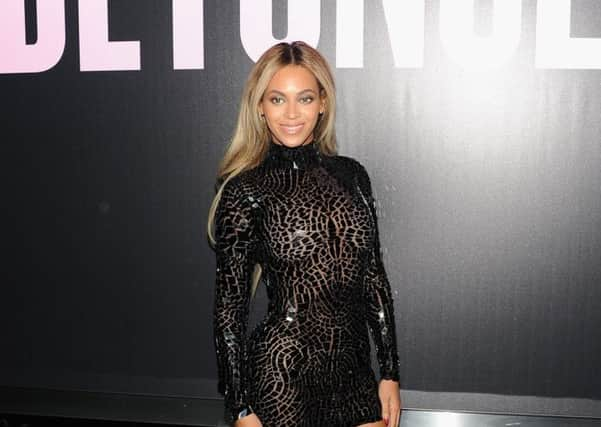Andrew Eaton-Lewis: Beyonce leading direct charge


First it was David Bowie in January, then Beyonce Knowles two weeks ago, raising the game by springing 14 new songs and 17 videos on us without warning – quite a feat in an age of 24-hour online gossip.
In between, My Bloody Valentine put out their first album since 1991’s Loveless – widely regarded as a classic – with no advance hype whatsoever, and JK Rowling figured the best way to publish her first crime novel was to pretend it was written by somebody no one had heard of.
Advertisement
Hide AdNow, this is clearly not just about avoiding media scrutiny. In Beyonce’s case, in particular, it was a clever sales tactic. Despite all that noble sounding guff about direct communication “from me to my fans”, part of the calculation was surely that, the faster you put lots of new music on sale, the more likely it is that people will just buy it rather than procrastinate and see if they can listen to it for free on, say, YouTube. Also, by only letting her beloved fans buy the album as a complete package, Beyonce made sure she got $15.99 out of them rather than just a dollar or two for the song they liked best. It worked: she sold a million copies on iTunes in six days.
Still, there’s a pattern here. Just as new technology is allowing musicians – and writers and filmmakers – to bypass old distribution models, it’s allowing some of them to bypass old media too. Beyonce’s marketing campaign for the new album was conducted via Facebook (to 53 million followers), Twitter (13 million) and Instagram (eight million). No interviews required. On a more modest scale, Amanda Palmer, a prolific and articulate blogger, has built a career on communicating directly with her audience. She was all over the media this year – not by doing interviews, but by doing things on her own terms (an open letter to Sinead O’Connor, a song about the Daily Mail) that the media then reported. When Radiohead released their last album, The King Of Limbs, after less than a week’s notice, rather than talking to lots of newspapers they created and distributed their own.
Since newspapers and magazines are still fairly stuffed with celebrity interviews, clearly the old promotional model isn’t quite dead yet, but the landscape is visibly shifting. Not engaging with the media is now a symbol of power – if you don’t need to talk to journalists, why would you? (Unless you’re Lou Reed and you just got twisted pleasure out of torturing them.) This year, David Bowie, JK Rowling, Beyonce and My Bloody Valentine’s Kevin Shields all sent the same message – I am important enough not to have to play your game.
As someone who still loves good, thoughtful arts journalism, this makes me sad. In my 15 years as a journalist I’ve watched the relationship between the media and the famous come to resemble a love affair in terminal breakdown. Celebrity magazines have gone from selling glamour to trying to make beautiful people – and women in particular – look as ugly as possible, like a spurned, vengeful lover. When it comes to interviews with the famous, the power is now wholly in the hands of PRs, who, acutely aware of how highly these interviews are valued by newspapers with dwindling circulations, are relentless in imposing ever stricter controls on time, subject matter, and even publication date. Enduring this sorry process is like communicating with a former spouse via greedy, intransigent lawyers.
If I were famous, I doubt I’d want to do interviews either, when the questions are so often banal, repetitive or plain intrusive, and the answers are so often shamelessly misrepresented. Who is to blame for that? Everyone. Bad journalists, clearly. PRs, for reducing the transaction to something so shallow, controlled and confrontational, and provoking journalists into rebellion. The public, for its nosiness, prurience and envy. The internet, for creating a world in which you can be malicious and voyeuristic without fear of repercussion. Wherever you point the finger, though, it’s all crumbling now. Bowie and Beyonce, I predict, are just early adopters.